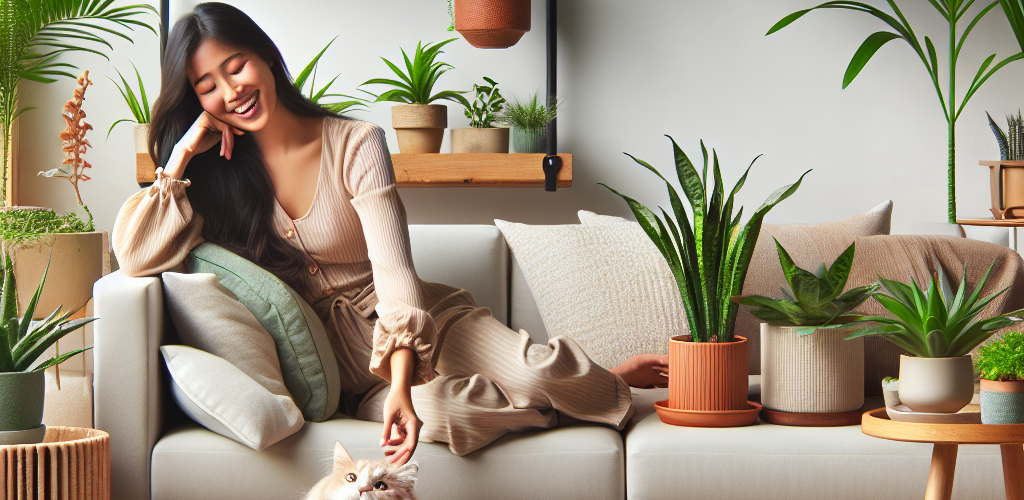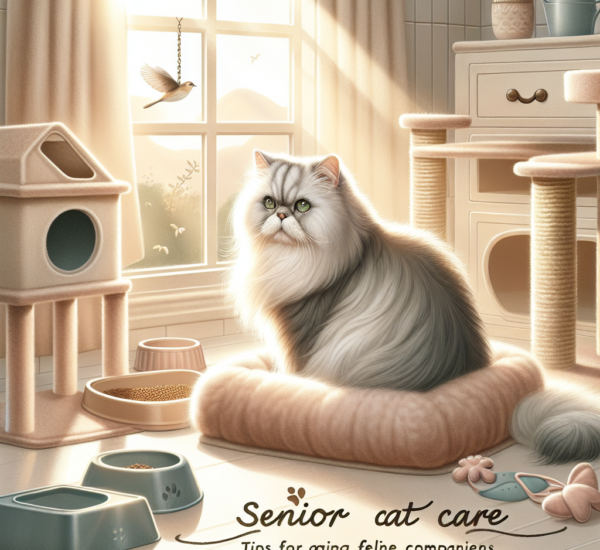As a dedicated cat owner, ensuring the safety of your feline companions is a top priority, especially when it comes to household plants. Many common plants are hazardous to cats; however, there are numerous beautiful and safe options you can choose. This guide will help you discover cat-friendly greenery to decorate your home, ensuring your cats can roam freely amongst lush, non-toxic foliage.
Table of Contents
- Why Safe Plants Matter for Cats
- Top Non-Toxic Plants for Cat Owners
- How to Choose Your Non-Toxic Plants
- Styling Tips for Your Home
- Conclusion
Why Safe Plants Matter for Cats
Our beloved cats are naturally curious creatures and often explore their surroundings by sniffing, chewing, and sometimes eating household plants. Plants like lilies and ivy can be toxic and lead to serious health issues ranging from mild irritations to severe poisoning. Hence, it’s crucial to select non-toxic indoor plants that can coexist safely with your feline friends.
Adorning your home with cat-friendly plants not only ensures their safety but also enhances your living space with natural beauty and air-purifying benefits. Safe plants become as much a part of your pet-friendly environment as your cats themselves.
Top Non-Toxic Plants for Cat Owners
Spider Plant
The Spider Plant (Chlorophytum comosum) is a popular choice among cat-friendly plants. Not only is it non-toxic, but its trailing leaves also provide a visual treat for your home. Plus, it’s easy to care for, making it perfect for beginners.
Boston Fern
The Boston Fern (Nephrolepis exaltata) is a lush, feathery plant that poses no threat to your cats. Known for its humidifying properties, this plant thrives best in indirect light and high humidity, so consider placing it in your bathroom or misting it regularly.
Areca Palm
The Areca Palm (Dypsis lutescens) adds a touch of tropical elegance without compromising on safety. This low-maintenance palm requires bright, indirect sunlight, making it a centerpiece in any room, and a safe one at that.
Calathea
With its striking patterned leaves, the Calathea is both a visual delight and cat-safe. It prefers a bit more humidity, so keep it slightly moist and away from direct sunlight.
Bamboo Palm
The Bamboo Palm (Chamaedorea seifrizii) is another excellent plant option for cat owners. Its air-filtering properties are well-documented, and its non-toxic nature ensures your cats can explore freely.
How to Choose Your Non-Toxic Plants
When selecting plants, consider factors such as:
- Light Requirements: Ensure your chosen plant fits the light conditions of your home.
- Humidity Needs: Some plants require high humidity; ensure you can provide this with location or additional care like misting.
- Maintenance Level: Opt for plants that match your ability and time commitment to care for them.
For a broader selection, resources like the ASPCA’s list of toxic and non-toxic plants offer invaluable information.
Styling Tips for Your Home
Here are some tips to integrate these wonderful, safe plants into your living space:
- Grouping: Grouping different plants creates a lush, layered look while improving air quality.
- Shelving: Use tall shelves to keep certain plants safely out of reach while still giving them adequate sunlight.
- Planters: Choose attractive planters that complement your interior décor and represent your personal style.
- Hanging Planters: Make use of vertical space with hanging planters, especially for trailing plants like the Spider Plant. It keeps them decorative and functional.
Conclusion
Choosing the right plants as a cat owner means balancing beauty with safety. With options like the Spider Plant, Boston Fern, and Areca Palm, you can create a pet-friendly oasis that satisfies your decorative desires and keeps your feline friends safe.
Experiment with different species and arrangements, and enjoy a home that delights you and nurtures your companions. For more tips on creating a cat-friendly household, be sure to check out our guide on cat-friendly home decor.
FAQs
Q1: How can I tell if a plant is toxic to cats?
A1: Refer to reputable resources like the ASPCA’s plant list for information on plant toxicity.
Q2: What are some common symptoms of plant poisoning in cats?
A2: Symptoms may include vomiting, diarrhea, lethargy, and drooling. If you suspect poisoning, contact your vet immediately.
Q3: Can I have lilies if I own cats?
A3: Lilies are extremely toxic to cats and should be avoided altogether if you have feline friends.
Explore these safe, aesthetic solutions and transform your living space into a sanctuary for you and your cats. Happy planting!
[ad_2]



